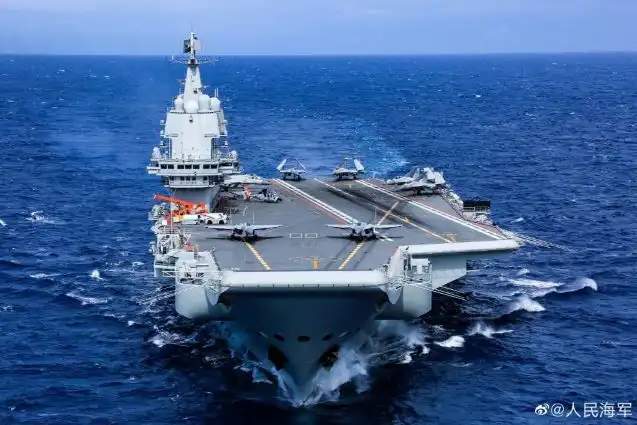China military drills Taiwan strong punishment Voice of Vienna
China conducts military drills around Taiwan as "strong punishment" for separatist acts, simulating full-scale attack in response to new president.
China has recently initiated two days of military exercises surrounding Taiwan, with its military labeling them as "strong punishment" for the self-governed island's "separatist acts". These drills took place just three days after the inauguration of President William Lai, who urged China to cease its threats towards the island and acknowledge the presence of its democracy.
China views Taiwan as a rebellious province destined to fall under Beijing's authority, while Taiwan sees itself as a distinct entity. Taiwan's defense ministry criticized the Chinese drills as "irrational provocations" and swiftly dispatched naval, air, and ground forces to safeguard its sovereignty.
The exercises simulated a full-scale attack, marking a departure from previous economic blockade simulations, as noted by Taiwanese military experts. The drills encompassed the main island as well as Taipei-controlled islands like Kinmen, Matsu, Wuqiu, and Dongyin near the Chinese coast, according to maps released by China's People's Liberation Army (PLA).
These military exercises also targeted the east of Taiwan, an area known for its rugged terrain and military fortifications. Taiwan has strategically positioned much of its military infrastructure along this coast, including an underground airbase near Hualien. By sending naval and air patrols to this region, China aims to demonstrate Taipei's vulnerability to attacks from the east and deter any American efforts to resupply or reinforce Taiwan from that direction.
China's PLA emphasized joint sea-air combat-readiness patrols, precision strikes on critical targets, and integrated operations inside and outside the island to assess the real combat capabilities of its forces during the drills. The ongoing exercise is believed to simulate a full-scale armed invasion of Taiwan, according to military experts.
Beijing has previously conducted "encirclement" operations around Taiwan, simulating blockades with fighter jets, navy ships, and missile strikes. These military maneuvers are seen as a response to perceived separatist actions by Taiwan independence forces and external interference in the region.
The Chinese foreign ministry defended the drills as a necessary measure to safeguard national sovereignty, emphasizing that Taiwan is an integral part of China's territory. Meanwhile, Taiwan's defense ministry criticized China's militaristic approach and highlighted the negative impact of continuous harassment by Chinese aircraft and ships on global peace and stability.
Despite being trading partners, China and Taiwan lack formal communication channels, with most countries recognizing China diplomatically over Taiwan. Analysts suggest that China's assertive stance on reunification has intensified under President Xi Jinping, who has emphasized the inevitability of reunification with Taiwan.
While China's military maneuvers around Taiwan have not escalated to invasion, analysts warn of grey zone warfare tactics aimed at gradually weakening adversaries over time. This ongoing tension underscores the complex dynamics between China and Taiwan, with both sides maintaining their respective positions while navigating diplomatic challenges and military posturing.











Comments on China military drills Taiwan strong punishment Voice of Vienna